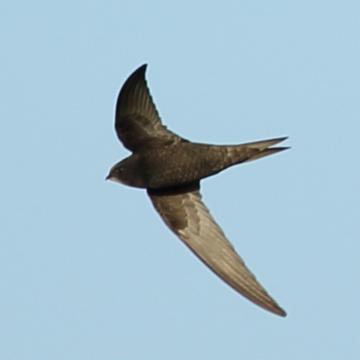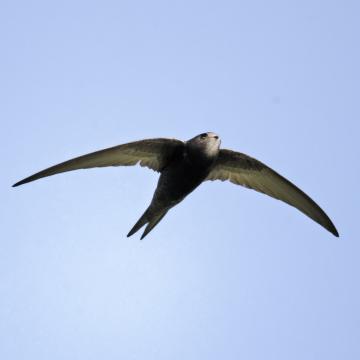Apus apus
Scarce
Summary
Blink and you could miss these acrobats of the sky. But if you don't see them, you will certainly hear their piercing screeches.
You aren't likely to catch them on the ground though, they spend almost all of their time in the sky-even when they rest!
They tend to nest in buildings and have shared ours here in the UK since the Romans came to Britain. Swifts can be seen right across Grimsargh Wetlands throughout the summer, swooping and sailing across the skies, catching aphids, flies, spiders, beetles and more.
Swift facts and statistics
• After hatching, swifts will fly non-stop for three whole years!
• Some migrate as far as South Africa for winter
• Eat aphids, flies, spiders, beetles, moths, dragonflies
• 17cm long with a 45cm wingspan
How to identify
Long scythe-like black wings and a short, forked tail.
Conservation status
Fewer and fewer return to our skies each year and we have lost over half our swifts in the UK over the last 25 years.
Habitat
Swifts spend most of their time in Africa, travelling thousands of miles to breed here in the UK (and elsewhere).
• Farmland
• Grassland
• Urban and suburban
• Wetland
Ways to help
You can help swifts by creating a safe nesting spot on the side of your home, which should be at least 5 metres above the ground.
Swift sightings at Grimsargh Wetlands






